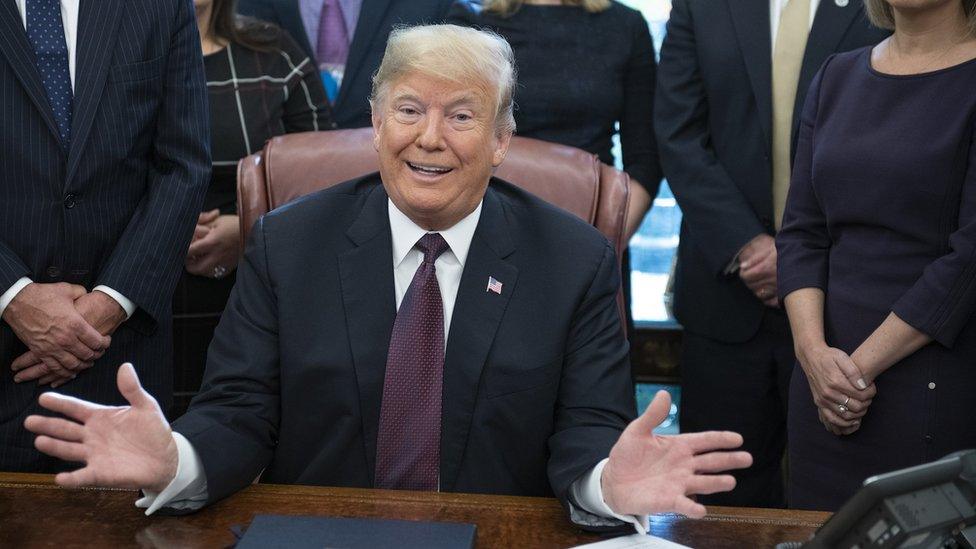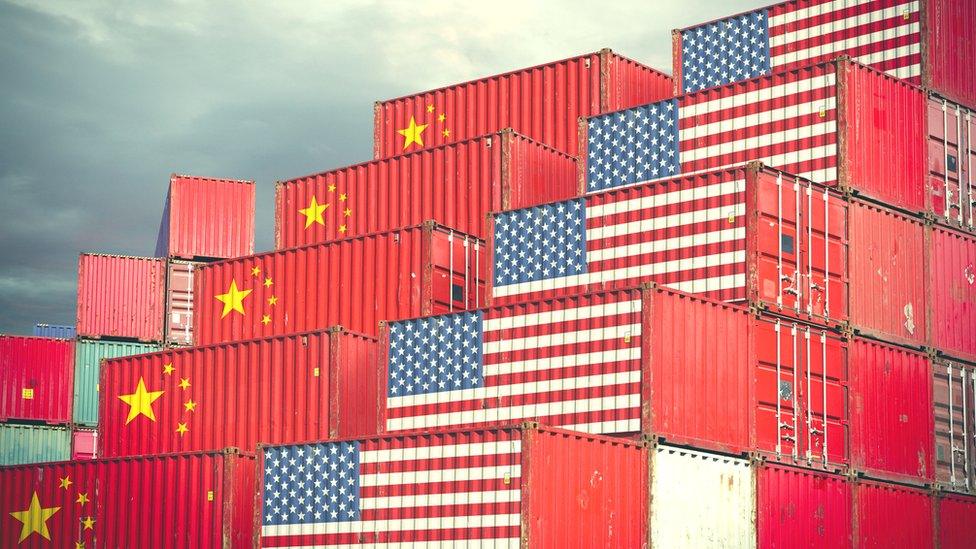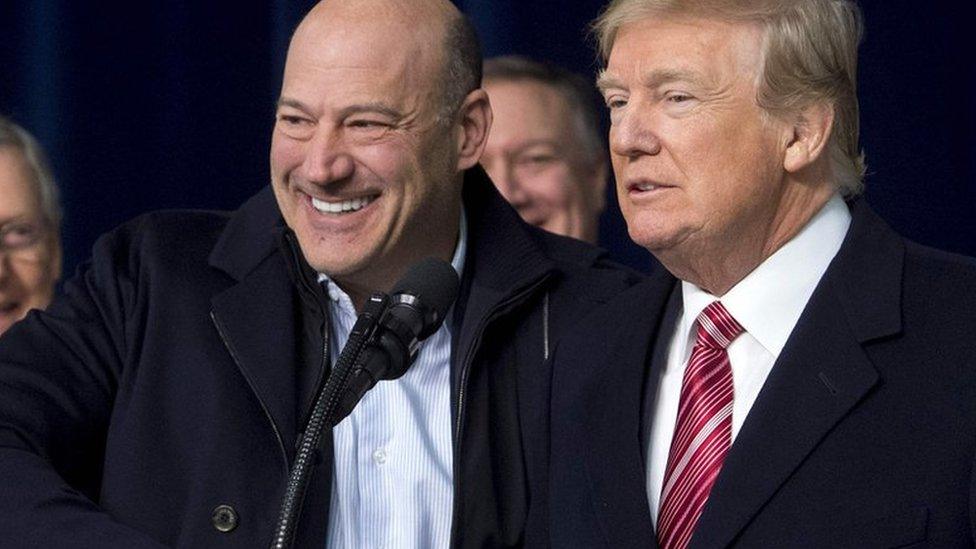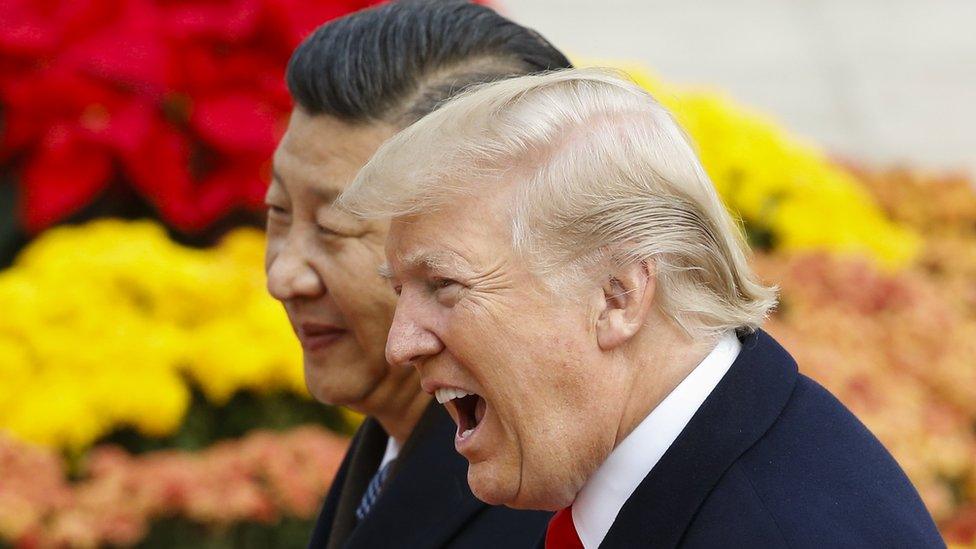Trump raises hopes of China trade deal
- Published

Donald Trump spoke about trade at the White House
US President Donald Trump has said he thinks the US could strike a trade deal with China, raising hopes that tensions between the two countries may subside.
"I think a deal will be made," Mr Trump said. "We'll find out very soon."
Mr Trump has made similar remarks in the past.
But this time the comments came after China put forward a new list of issues for negotiation ahead of the G20 summit, which the US President described as a "pretty complete list".
However, he said that several key items were lacking, meaning that the list was still "not acceptable to me yet".
"I think we'll probably get them too," he added, speaking to reporters after a bill signing at the White House.
Mr Trump has already imposed new import taxes on Chinese products worth about $250bn in annual trade, which has led China to respond in kind.
But on Friday he appeared to soften earlier threats of additional tariffs.
"We have another $267bn [in tariffs ready] to go, if we want to," he said.
"We may not have to do that," he added. "China would like to make a deal."
US share markets jumped in response to the comments.
Investors have been rattled by the stand-off between the two economic giants.
Mr Trump says the new import tariffs are meant to punish China for "unfair" practices, such as theft of intellectual property, state subsidies of Chinese companies, and barriers to foreign firms.
But the duties have raised costs for US companies and been blamed for some of the recent slowdown in China's economic growth.

The US has imposed tariffs on Chinese goods worth an estimated $250bn in annual trade
The two sides are expected to meet at the G20 summit in Argentina at the end of the month.
Earlier talks between the two countries failed to resolve the issues. Many analysts remain sceptical about the prospects of a deal that would address the deeper issues raised by the US.
However, some say Mr Trump may be willing to accept less substantive change, as he has in other trade disputes, such as the revision of the North American Free Trade Agreement (Nafta).
- Published7 November 2018

- Published9 October 2018

- Published18 September 2018
